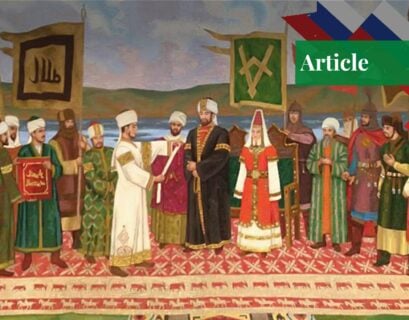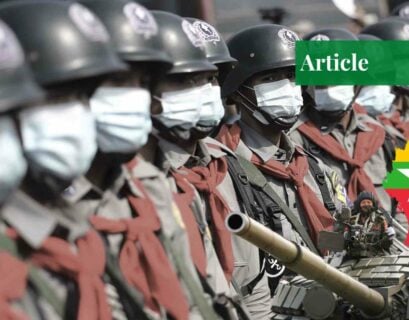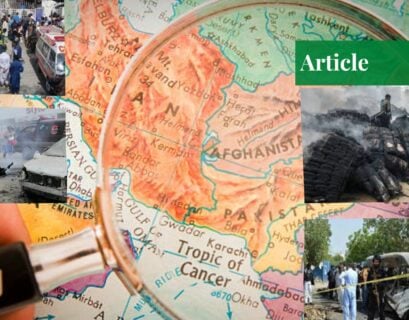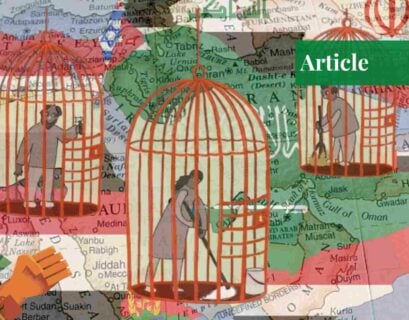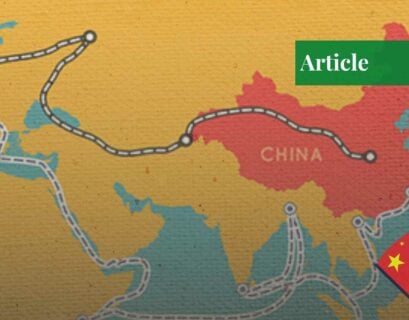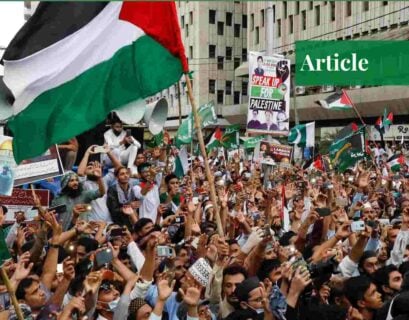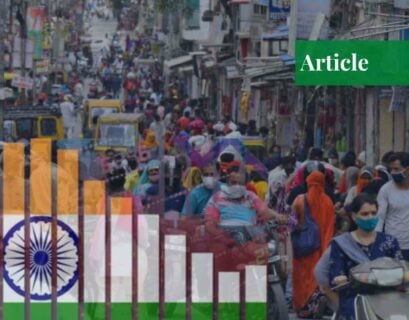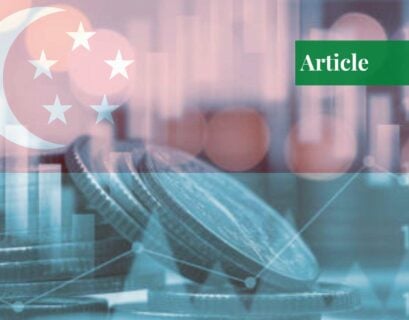Analyzing the Iranian and Israeli Counter-Strikes
April has been eventful for security analysts and geopolitical experts.
The long and bitter rivalry between Iran and Israel was fully exhibited by the repeated strikes and counter-strikes between the two.
There is something oddly interesting about these retaliatory attacks, and Abdullah Nisar shares his take on the attacks between 1st and 19th April and how things will play out.
Will Iran make its move against Israel for the Isfahan attacks?
Maskirovka, A Russian Military Strategy—Is the Element of Surprise Still Relevant?
Maskirovka has always been an elusive term, often times used crudely at any Russian perceived act, but there is more depth, complexity, and meaning to maskirovka than some immoral Russian trickery.
It is a military art, deemed reliable since its first use against the Mongols. It is a way of war, and along with it comes the element of surprise, an under-rated part of maskirovka.
Alishbah Syed explores the concept of maskirovka and the continuing relevance of surprise in it.
Provincial Power Up: Analyzing the Devolution of Power in Pakistan
In Pakistan, the shifting patterns of political and military rules have had profound effects on the development of grassroots democracy, including on the form and design of local government institutions.
Accordingly, the nation has been subject to both ‘dictatorial democracy’ and ‘democratic dictatorship’ in terms of its municipal governments.
Fatimah Naeem and Haffiza Syeda Azkia Batool chart the evolution of decentralization, from the Devolution of Power Plan 2001 (DOPP) to the 18th Amendment.
Tales from the Steppes: The Presence of Muslims & Islam in Russia
The history of the Muslim communities in Russia dates farther back than the collapse of the Soviet Union.
This article delves into the rich heritage of Islamic traditions in Russia, from the early interactions with Tatar Muslims to the modern-day expressions of faith among diverse Muslim communities.
Fatimah Naeem examines the challenges and opportunities faced by Muslims in the Russian state, including issues of religious freedom, cultural integration, and political representation.
She also highlights the contributions of Islam to Russian culture and society, showcasing the resilience and diversity of Muslim identities within the Russian Federation.
The Iran-Israel War: A False Front of Power
The Iran-Israel war has been making headlines in April, and rightly so—the fear of a WWIII happening has the world glued to screens now, more than ever before.
Lt Gen (R) Tariq Khan has a different view of these attacks between Iran and Israel. He deems them only to be an act; a play that appears to show both countries as protagonists.
Myanmar’s Turbulent Journey Through a History of Coups and Resilience
In the archives of Myanmar’s rich and intricate history, the chapters detailing military coup d’état echo with a jarring blend of resistance, power, and resilience.
Today, we find a nation that has weathered the intense storms of terror, staging revolts while standing resilient amongst the changing winds.
The military coup in the state of Myanmar took place in 2021, bringing forth the horrors of its past. Ayra Azhar attempts to navigate Myanmar’s intricate past, unveiling the shadows of its military rule while igniting the flickering flames of democracy.
The Red Heifer and the Third Temple
Abu Obaida of Al-Qassam Brigades linked the arrival of red heifers to the October 7 attacks, showcasing the intertwining of politics and religion.
The historical significance of Palestine, especially Jerusalem and the Al-Aqsa Mosque, underscores religious and geopolitical tensions.
The Israeli-Palestinian conflict, once seen as purely political, is now viewed religiously. The quest for a pure red cow, crucial in Jewish prophecy for the Third Temple, exemplifies this.
Muhammad Hamza Tanvir breaks down the Jewish prophecy and its implications for the followers of Abrahamic religions.
Terror Attacks in Pakistan: Role of Afghanistan in Promoting Instability
Since the American withdrawal from Afghanistan in 2021, Pakistan has consistently voiced its concern regarding the neighboring country’s harboring of terrorists. The recent surge in terror attacks in Pakistan, Iran, and Russia has reignited this concern, prompting questions about American interests in fostering instability in the region.
Kafala System: Violating the Rights of Migrant Labor in the Middle East
Migrant labor plays a crucial role in the global workforce, contributing significantly to host countries’ economies.
However, they encounter various obstacles such as low pay, discrimination, and infringements of their labor and human rights, notably through the kafala system in the Middle East.
Khizra Rashad takes the example of Qatar’s FIFA World Cup controversy to illustrate the widespread mistreatment and exploitation experienced by migrant workers in many Middle Eastern countries.
Russia’s War in Ukraine: Shrouded in Western Hypocrisy
In his analysis, Lt Gen (R) Tariq Khan discusses the glaring hypocrisy of the West amid Russia’s war with Ukraine. He highlights the stark contrast in Western response, noting that despite its apathy towards conflicts in Iraq, Palestine, and Bosnia, the West has now decided to raise its voice for Ukraine simply because it’s considered “civilized,” unlike the others. The author critiques Western involvement and its portrayal of Ukraine as a victim, while predicting a grim future for the country. He emphasizes the need for a fairer global order based on equality and justice.
Is China’s Belt and Road Initiative (BRI) Another Marshall Plan?
Though they’re separated by more than half a century, the American Marshall Plan and China’s Belt and Road Initiative (BRI) were both responses to global crises. Fahad Nasir provides a comparative analysis of the two financial initiatives, drawing upon the differences and similarities between the two in a comprehensive manner.
Memoricide: Zionism’s Deletion of Palestinian Memory
In its pursuit of rewriting history and justifying its occupation of Palestinian land, Zionist Israel has actively erased the memory of Palestinians. Nothing illustrates this better than the term “memoricide,” first coined in 1991. To push the narrative of a purely Jewish nation inexorably linked to God, Israel has employed tactics ranging from massacres, depopulation, and destruction to toponymic changes. The memoricide that began before 1948 continues to this day, effectively erasing the presence and history of Palestinians in their own land.
Israel’s Heinous Targeted Killing Programme
The ongoing Israeli war in Gaza has brought to the fore the violations of international law committed by Israel. Sarmad Ishfaq discusses one such violation—Israel’s targeted killing program—and the moral and legal debates surrounding it. Highlighting the historical context and prominent operations, he outlines Israel’s use of targeted killings to eliminate perceived threats, including Palestinian leaders and Iranian nuclear scientists.
Pakistan’s Diplomatic Tapestry: Unraveling the Threads of Foreign Policy in Support of Palestine
Mishayam Jan Ayub explores Pakistan’s enduring support for Palestine, tracing its diplomatic positions and public sentiments. She highlights Pakistan’s unwavering backing for Palestine in the country’s foreign policy, one rooted in historical and cultural ties as well as geopolitical considerations.
The Indian Economic Model: A Story of Progress & Paradox
Jana Awez provides a critical analysis of India’s economic growth, revealing the harsh realities that exist beneath the surface of its impressive economic achievements. Despite economic gains, citizens grapple with debt, inflation, unemployment, and poor infrastructure. India’s dream of becoming an economic superpower clashes with existing social issues.
Singapore’s Giant Digital Economy
Despite the global economic hiccup, a tiny island nation often termed the “Lion City,” Singapore remains one of the world’s strongest economies.
Its robust “smart nation” initiative, which mobilizes advancements in digital technologies to create smooth, tech-driven actions, has firmly put Singapore in a good position to develop a strong digital economy and a force to reckon with in the tech-oriented society.
Artificial Intelligence and National Security: A Way Forward for Pakistan
Noman Ali Kalhoro identifies the loopholes and shortcomings in the draft national AI policy by the Ministry of Information Technology and Telecommunication, a document that has the potential to shape Pakistan’s roadmap towards a competitive posture in this technological era.
By examining the US’s National Artificial Intelligence Initiative and China’s New Generation Artificial Intelligence Development Plan, he showcases their guiding principles, ideology, and implementation methods while investigating the influence of AI in the national security paradigm.



